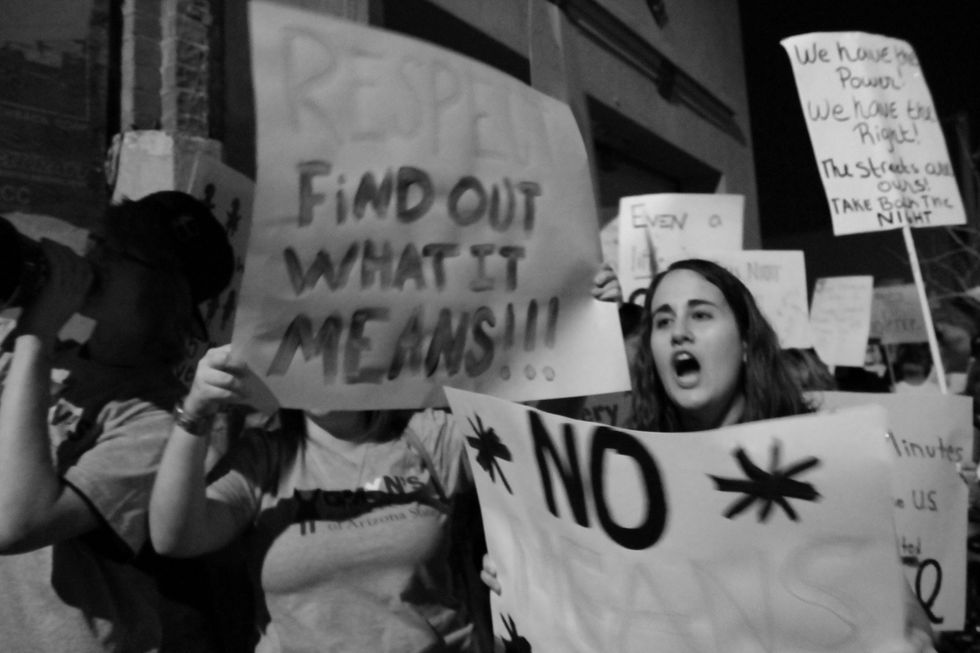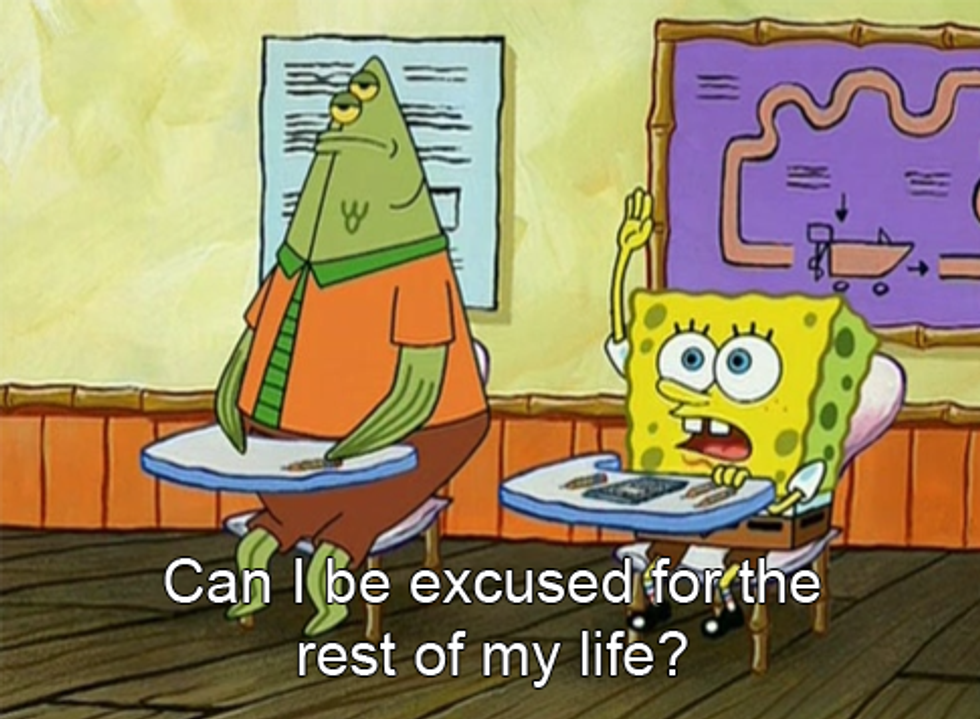April is a month jam-packed full of important dates: Easter, Earth Day, April Fool’s Day, etc. More importantly, it is also a month that raises awareness for a lot of causes: World Autism Day, National Child Abuse Prevention Month, National C-Section Awareness, and National Sexual Assault Awareness month.
As I got older and all of the Law & Order: SVU episodes started making more sense and I heard stories of loved ones’ experiences with sexual assault, I became more vocal about the topic. I learned all that I could about the statistics and would shut down a rape joke whenever it happened.
Once college hit, I had a couple of friends who opened up to me freshman year about their experiences with it and I never really knew how to respond - how could I properly assist them in their time of hurt? I decided that I would always DD my friends to parties or when we went out so I could make sure they were safe and their drinks weren’t messed with.
I did everything I could to prevent anyone in my life from going through the experience because I thought it was that easy.
Then it happened to me.
I wasn’t at a party. I wasn’t drunk. It didn't last forever and wasn’t gruesome like Law & Order: SVU told me it would be. I wasn't asking for it. In fact, I said no.
But it still happened.
Now I was the friend confiding in friends about my experience and them not knowing what to say - how do they properly assist me in my time of hurt? I didn’t expect them to have the right things to say because from being in their shoes before I knew how hard it was to empathize with it when you haven’t been through it. It also was hard for them to know what to say because it took months - and I mean months - for it to sink into my head what had happened; so when I would talk about it, I seemed very casual.
Like, as I would be with talking about my morning routine. The thought that it happened to me seemed so outlandish and unreal that it seemed numb and didn’t bother me. When it did hit, it hit with more force of anything I’ve ever felt in my life. In fact, I’m still working on it with the help of therapy and prayer.
I haven’t told many people - to be honest, I could probably count on one hand how many people I have told outside of my therapist’s office. So here I am, in typical “me” fashion and writing this article.
Why? Well, not because it’s easier this way, that’s for dang sure.
I’m writing this article for the people like me. For the people who don’t know what to say to a loved one who tells them of their experience. For the person who thought it would never happen to them, but it did happen. For the person who is numb and it hasn’t hit yet. For the person who hasn’t fully healed from it yet.
Whether you’re the friend who doesn’t know what to do to help or you’re the friend who doesn’t know how to be helped, all of these experiences are valid.
In April and every other month of the year, the discussion needs to happen. Maybe not on this scale, but it needs to happen. The loved ones of a victim need to talk about their experience with it. The victims need to talk about it (in their own time because it’s hard). Bottom line is, the talking needs to happen.
To the person being confided in: be a friend, be an ear, love them through this tough season in their life. You don’t have to have been through it to empathize with them. Say whatever you feel is best to comfort them and let them know you’re there for them. Whatever you say or do, don’t question the validity of their experience or make them feel ashamed for telling you. Be a friend.
To the person who has been through it: you are not alone. I am with you. Millions of others are with you. We will get through this together. Your experience is valid and so are your feelings. You are worthy of love and support. You are stronger than you think. You can do this.
If you need a resource to tap into or just want to learn more, go here.





















